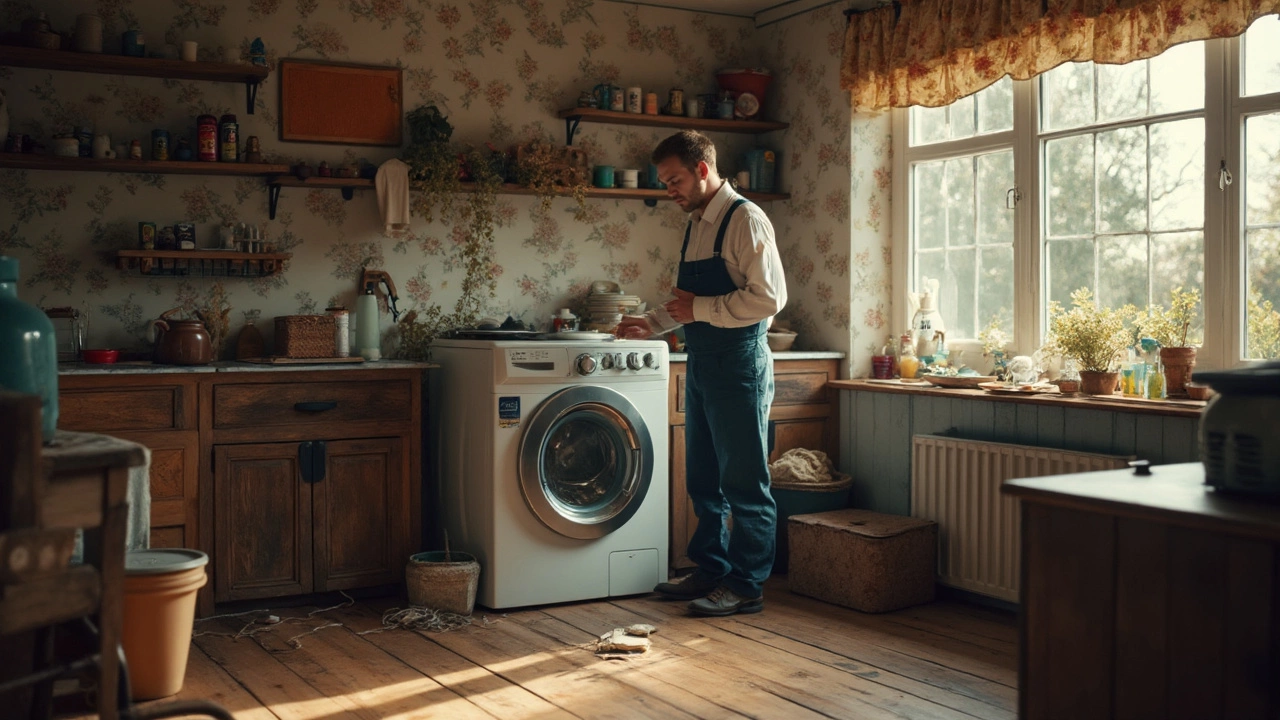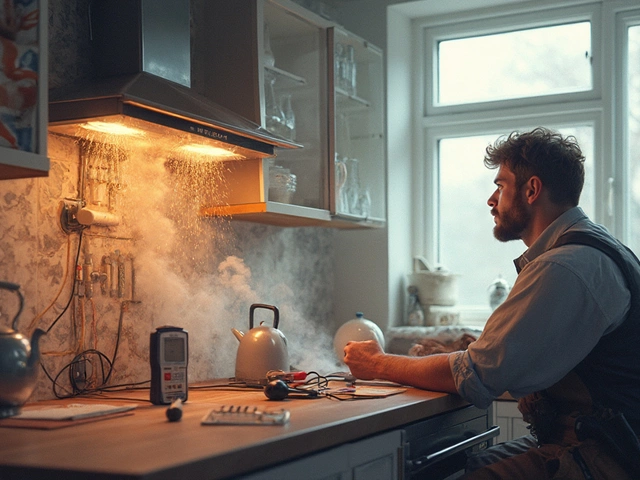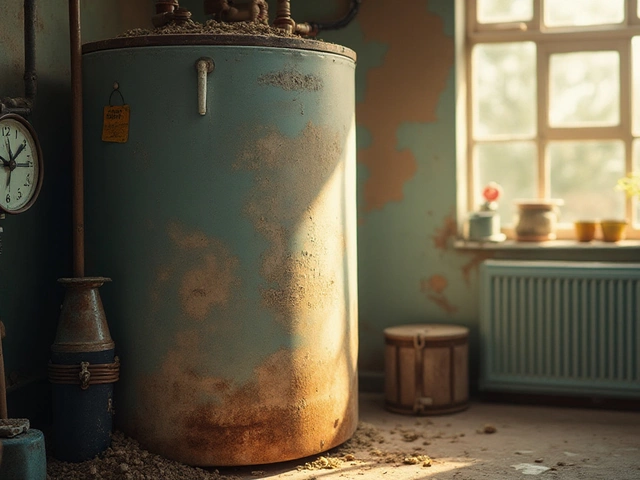Got a busted washing machine, a cold oven, or a noisy heat pump? Your first question is probably, "Should I fix it or replace it?" The answer isn’t always obvious, but you don’t need a diploma to decide. Below is a straight‑forward way to sort out what makes sense for your wallet and your home.
Keep this short list handy the next time something breaks. Answer each point honestly and you’ll see a pattern.
1. Age of the appliance. Most appliances have a typical lifespan – washers 8‑12 years, ovens 10‑15, heat pumps 15‑20. If yours is past that range, replacement is often cheaper in the long run.
2. Cost of the repair. A good rule is the 50 % rule: if the repair bill is more than half the price of a new unit, think about buying new.
3. Frequency of problems. One‑off hiccups are fine, but if you’re calling a tech every few months, the appliance is probably on its way out.
4. Energy efficiency. Newer models use less power or water. Even if the repair cost is low, a newer, efficient unit can save you money on bills.
5. Safety concerns. Leaking gas, exposed wiring, or a broken water heater can be dangerous. When safety is at risk, replacement is the safest choice.
Heat pumps that won’t heat or cool. If the unit is over 15 years old, the compressor is likely wearing out. New heat pumps are up to 30 % more efficient.
Boilers with repeated breakdowns. Boilers that need service every season are usually past their prime. A new, modern boiler can lower heating costs and give you peace of mind.
Dishwashers that never clean. When spray arms corrode or the motor stalls repeatedly, a fresh dishwasher will clean better and use less water.
Electric ovens that won’t heat. If the heating element or thermostat fails and the oven is older than 10 years, a new oven often pays for itself in energy savings.
Water heaters that keep resetting. Constant resets mean the thermostat or heating element is failing. After a few years of repair, a new water heater is the smarter bet.
Every situation is unique, but using the checklist above you can avoid guesswork. If you’re still stuck, call a local repair expert. A quick diagnostic call can confirm whether the fix is simple or if you should start shopping for a replacement.
Remember, fixing an appliance saves money now, but replacing an old, inefficient unit can save you more over time. We hope this guide helps you make the right call for your home and your budget.

Wondering if you should repair your washing machine or just buy a new one? This article breaks down when it's smart to fix your appliance and when it's better to let it go. Get tips on common washing machine problems, repair costs, and simple troubleshooting steps. Plus, learn how to avoid getting ripped off by price gouging repair techs. If laundry day is starting to look like a coin toss, read this before calling the junk hauler.

Wondering if it's worth repairing your electric oven or if you should just buy a new one? This article dives into the factors to consider, from cost effectiveness to the age of your appliance, helping you make an informed decision. We'll discuss common issues that can be fixed, when to call in a pro, and some smart tips to extend the lifespan of your oven. By the end, you'll know whether fixing or replacing is the better choice for your situation.

Figuring out whether to repair or replace a 10-year-old range can save money and hassle. This article explores cost considerations, common issues, and when to opt for repair versus replacement. Additionally, discover maintenance tips to extend your range’s life. Make informed decisions with a detailed look into repair pros and cons. Navigate the world of kitchen appliances with confidence.

Wondering if fixing your 7-year-old washing machine is worth it? This guide helps you weigh the pros and cons. Consider factors like repair costs, common issues, and the appliance’s lifespan. Find out when it makes sense to repair or replace. Get informed tips to make the best decision for your laundry room.

Extractor fans are essential for maintaining good air quality in homes, but what happens when they break down? This article explores whether electricians are the right professionals to fix extractor fans, the typical issues these fans encounter, and some maintenance tips to avoid frequent repairs. Learn about the repair process and when it might be time to replace your fan altogether.

A practical guide for diagnosing common refrigerator problems, spotting signs of faults, and fixing them at home with tips and real-world facts.

Cracked or damaged glass hobs make you panic, but not every problem spells doom for your stove. This article breaks down what issues can actually be fixed and when it's smarter to replace the glass. You’ll get real-life tips, possible repair options, and clear warnings for common mistakes. Safety comes first, but you’ll also find out when you can handle things yourself—or absolutely need a pro. Practical info, simple steps—you’ll get the full story on glass hob repair.

Extractor fans are crucial for maintaining fresh air and reducing humidity in various parts of a home. When these fans malfunction, it's important to know who to call for repairs. This article guides homeowners on how to find reliable extractor fan repair services. We'll look at why professional help is essential and what to consider when selecting a repair technician.

Neglecting to flush your water heater can lead to a host of issues, from inefficiency to full-blown malfunctions. Sediment buildup can decrease heating efficiency and even cause damage over time. This article explores what happens if you never flush your water heater, why regular maintenance is crucial, and how you can perform these tasks. Dive into practical advice and tips for maintaining a healthy water heating system.